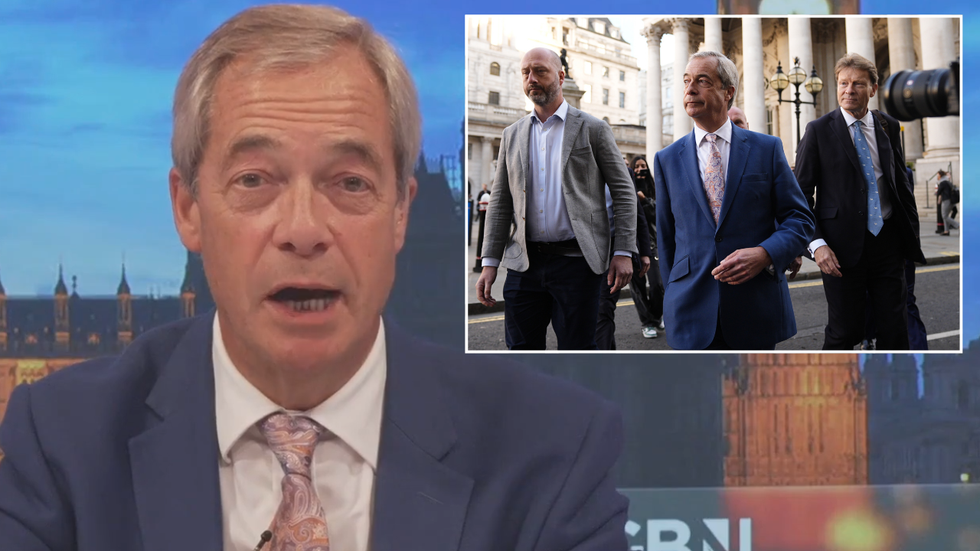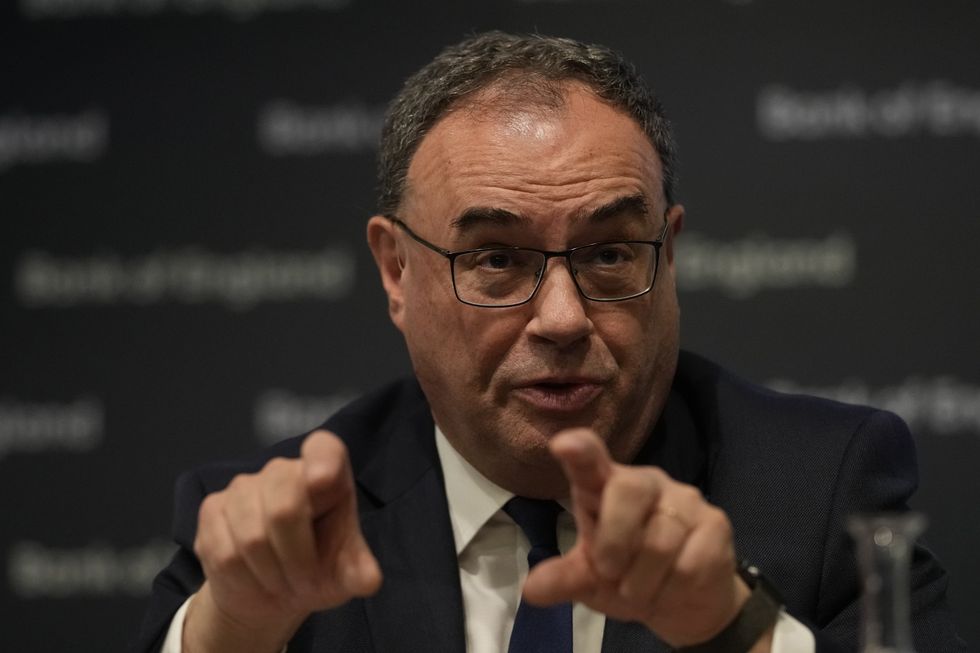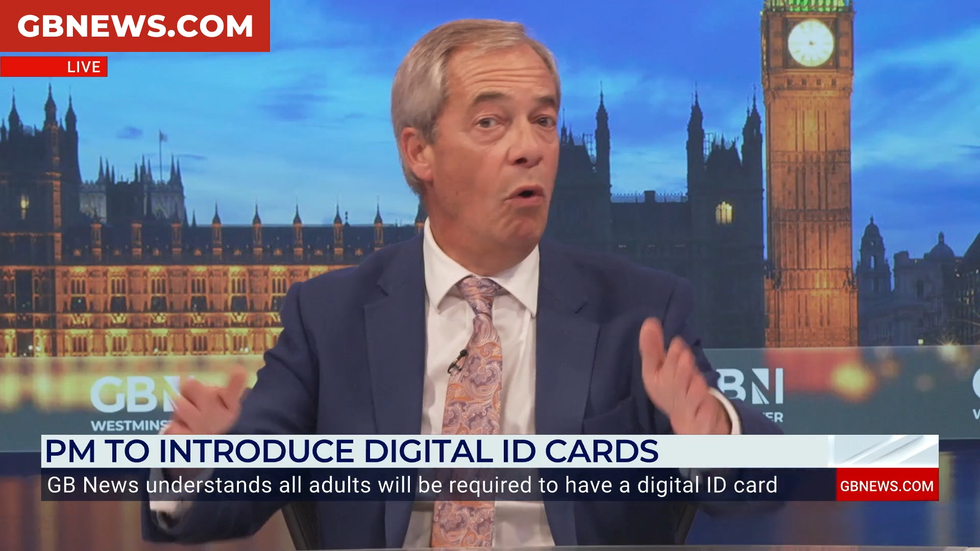Reform UK leader Nigel Farage has delivered a blunt political rejection of central bank digital currency proposals during his meeting with Bank of England Governor Andrew Bailey.
Speaking on GB News following the encounter, Nigel revealed his stark opposition to the plans.
“My response, which was not a central banking response, was over my dead body,” he stated when discussing the digital currency proposals.
The Reform UK leader explained that Bailey had outlined how both the Bank of England and the Government were exploring whether digital currencies could function effectively in practice.

The Governor specifically highlighted potential benefits for combating fraud.
Despite Bailey’s rationale, Nigel’s emphatic dismissal signals a significant political divide over the future of digital currencies in Britain.
LATEST DEVELOPMENTS
- Nigel Farage delivers ANOTHER crushing blow to Labour after Tory defector hands Reform huge win
- Do NOT buy the immigration ruse. Keir Starmer’s digital ID card is a digital prison – Adam Brooks
- Nigel Farage blasts PM’s digital ID plan before warning ‘state should never have this much power’
The encounter at the Bank of England’s Threadneedle Street headquarters brought together Nigel and his deputy Richard Tice with Governor Bailey for what participants characterised as a constructive discussion. Mr Tice described the meeting as a “significant moment” and noted that Mr Bailey was “keen to engage” with their concerns.
“I asked him about central bank digital currencies. He made it very clear that the Bank of England and the Government are pursuing the idea to see if it can work in practicality,” Nigel recounted on GB News.

The Governor emphasised that digital currencies could serve as an effective tool for addressing fraudulent activities.
Mr Bailey’s position reflects ongoing institutional interest in exploring technological solutions to financial crime, though this approach has clearly failed to convince the Reform UK leadership.
The discussion extended beyond digital currencies to encompass broader cryptocurrency policy, where Nigel pressed for a more progressive stance from the central bank. He had previously branded Bank officials “dinosaur bureaucrats” over their approach to digital assets.
Following the meeting, Nigel acknowledged some progress, telling reporters that Mr Bailey was maintaining an open mind on cryptocurrency regulation, which he found “at least encouraging”. However, he maintained that the Bank was “moving a little too slowly” on embracing digital assets.

“I think they’re adopting an overly cautious approach. What he did say was, in that world, that they are looking at it. He said ‘our minds are not closed on this issue’,” Nigel reported.
The Reform UK leader has become an outspoken advocate for cryptocurrency adoption, with his party accepting Bitcoin donations and proposing to establish Britain as a leading hub for crypto innovation.
The meeting also covered Reform UK’s campaign against the Bank’s quantitative tightening programme, with Mr Tice arguing that halting bond sales could assist Chancellor Rachel Reeves ahead of November’s Budget. The deputy leader characterised the current approach as a “systemic misuse of taxpayers’ money” that saddles the public with billions in losses.
Reform’s economic positions face scrutiny, however. Research by campaign group Best for Britain revealed that 57 per cent of potential Reform voters found attacks on the party’s spending plans and economic credentials most persuasive among various criticisms.
Labour MP Liam Byrne seized on these findings, comparing Farage to “Liz Truss 2.0” and accusing him of promoting “unfunded promises” that would result in higher mortgages and bills for working families.
Our Standards: The GB News Editorial Charter







Follow